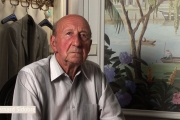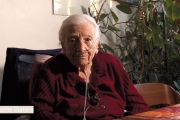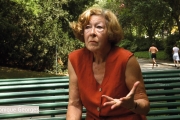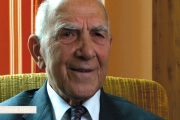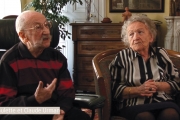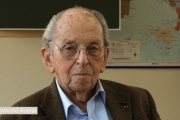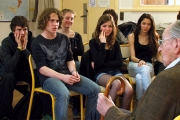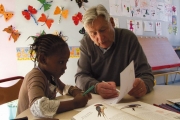Synopsis
Faire quelque chose is a film that links the testimonies of a number of surviving Resistance fighters of World War II. These women and men immerse themselves once again in the context of that time period and share with us their experience of the Resistance: its beginning, development as well as final outcome. The most essential part is what brought them together: the choice not to endure and the will to act.
 The Cultural Service
The Cultural Service
of the French Embassy:
Supporting Contribution
for Documentary Screenings
Credits
Director: Vincent Goubet
Screenplay: Vincent Goubet
Producers: Vincent Glenn, Vincent Goubet
Cast
Stéphane Hessel • Bernard Sidobre
Josette Dumeix • Monique Georges
Raymond Aubrac • Paulette et Claude Urman
Schedule & Presentation
![]() Presentation by and discussion with director, screenwriter and producer Vincent Goubet
Presentation by and discussion with director, screenwriter and producer Vincent Goubet
More information

Vincent Goubet
(Director)
What can a cinematic perspective bring to the Resistance?
What interested me was to make history come alive. The witnesses share not only military actions or historic events but also layout their experiences, their sufferings, their joys.
Were all the witnesses willing to speak from the beginning?
Often, most of the witnesses opened their doors without asking questions. I had the opportunity to meet people of very different backgrounds: Jewish resistant fighters, Armenians, members of the Resistance, townspeople, left wing and right wing people, Gaullists. At the end, there were 33 witnesses on screen representing the diversity of the Resistance. My reward is to have shared these moments with them, listening to them making the past alive again, inviting us to continue scrutinizing the present as well as the future.
What is your approach as a director?
This film is a testimony as well as an invitation to give a very concrete sense to the idea of resistance. I wanted to focus on their faces, to get into their stories, their anecdotes, and leave the rest to the imagination of the spectator. Not being a historian, I wanted to grasp the daily life – often very unrewarding and dangerous – of those years of struggle: the gestures, the objectives, the alliances, the strategies, the communication… I also sought to understand what resistant fighters had in common. Even if they lived very different realities (due to geography, various movements and forms of resistance…), they shared a lot of things. First of all, their common reaction to refuse the unacceptable and the necessity they felt to fight to the end.
What would you say to students who will come see the film?
What Raymond Aubrac told each student he met: “When you witness an injustice, you have to react. You react the way you can but it is a necessity to react.”



